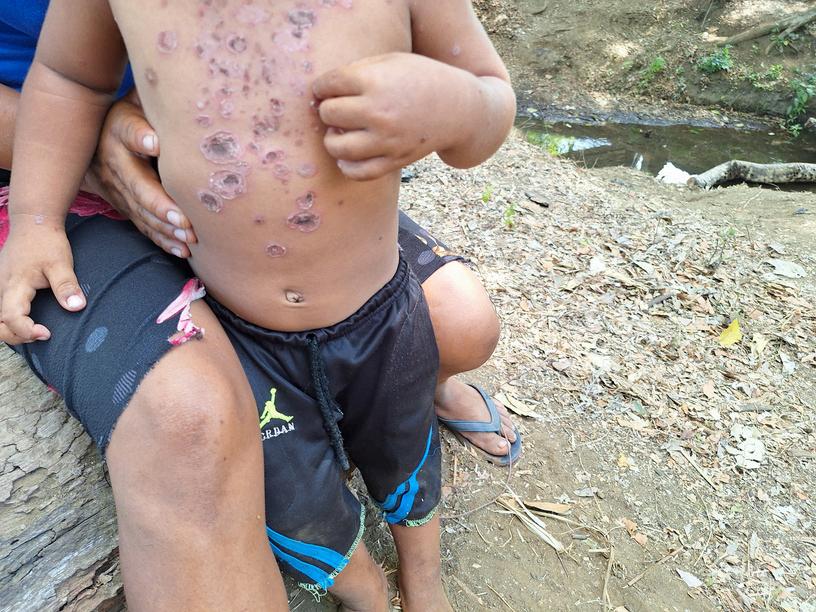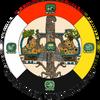AFTER ILLEGAL EVICTION,
INDIGENOUS FAMILIES LIVE IN MAKESHIFT TENTS BY THE RIVER
By: Aj Ral Ch’och’ (Q’eqchi’) and Juanita Cabrera Lopez (Mam)
The Buena Vista Maya Q’eqchi’ community lives under roofs made of plastic on the banks of a river in El Estor, Izabal, Guatemala.

June 24, 2024
Invaders in our own lands
More than a month has passed since 29 Maya Q’eqchi’ families from the Buena Vista community of El Estor, Izabal, were illegally evicted from their community. Children, pregnant women, and elders were left vulnerable in the open.
This eviction was carried out by the Public Ministry (MP), the National Civil Police (PNC) Judge Sandra Nineth Ayala Tello and the private security personnel of the Tzinté Estate. The families were only given an hour to dismantle their homes and to look for another place to go. This was not enough time to collect their belongings.
In August 2015, the families of the Buena Vista community survived a landslide in Sierra Santa Cruz, located in the northern area of the municipality of El Estor. During this landslide they lost their crops and homes and the lands they were on were deemed uninhabitable by the National Coordinator for Disaster Reduction (CONRED). The community was abandoned by the Otto Pérez Molina Administration and the former mayor, Sostenes Leiva, of the Patriot Party. Currently, the families of the Buena Vista community live under trees in makeshift plastic tents on the banks of a river that passes through the community of Santa Rosita, El Estor, Izabal.
65 children now must eat on the ground, surviving from the generosity of some nearby communities and human rights organizations.
On June 22, a visit by the Presidential Commission with the Buena Vista community was held regarding the evictions in El Estor Izabal of May 22. Up until this past weekend, the community had not received any visits from the Government of Bernardo Arévalo, nor from the Human Rights Ombudsman's Office or other government officials. The only visit was from the director of the El Bongo Community School asking parents to disenroll the children from school because they were not attending class. According to the children's parents, attendance for the children is impossible due to the distance.

@mayanleague


